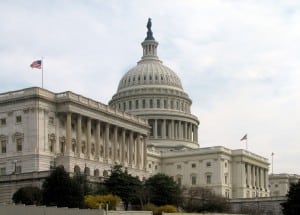
The Senate voted Tuesday to limit debate and advance a bill renewing a controversial National Security Agency (NSA) warrantless surveillance program for another six years.The procedural vote passed by a slim margin of 60 to 38, receiving votes across party lines to extend Section 702 of the Foreign Intelligence Surveillance Act.The legislation offers minimal changes to the intelligence community’s (IC) program to collect communications on foreign suspects outside of the U.S, despite lengthy debate about loopholes in the authority that…

 By
By 











